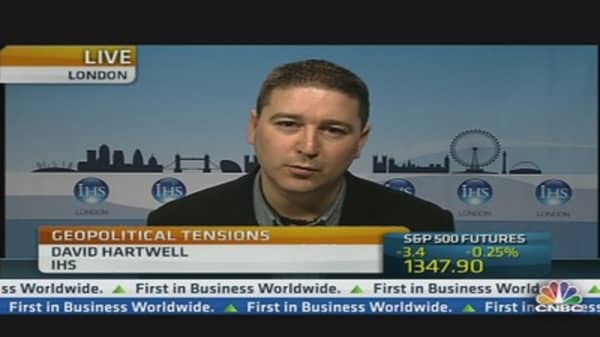"I think the local market has exhibited some real resilience over the last two sessions," he said. "The sell-off into Wednesday's close following the announcement of the Israeli strike against Jaabari wasn't a major fall. It was a knee-jerk reaction. Thursday's fall was largely in line with global equity markets trading."
Israel's Cellcom Israel trades on the New York Stock Exchange. The stock is up almost 5 percent this week on solid earnings released earlier this week. It's a sign, Herzog said, that proves his point: While some investors are certainly concerned about violence in Israel, fundamentals remain very important to the Israeli market.
In December 2008, Israel launched "Operation Cast Lead" in response to massive rocket fire from Gaza. The fighting, including a short-lived Israeli ground incursion, lasted about a month. In 2006, Israel fought another month long war against Hezbollah in Lebanon. In both cases the Tel Aviv Stock Exchange fell during the fighting but picked up in the final weeks and days of violence before going on to a full-fledged recovery, both times.
Two months after the second Lebanon war in 2006, the Israeli exchange was 5 percent higher than it was the day the fighting began in July. In 2009, it took only a month for the fighting to end before the Tel Aviv Stock Exchange was 12 percent higher than it had been when the Israeli operation began on Dec. 27, 2008.
"Historically, the impact of military operations is limited to the first one to two sessions, with the market returning to trade normally thereafter," he said. "I think this pattern is likely to be followed again in the current flare-up if no significant widening of the conflict takes place, like if Syria or Lebanon were to involve themselves."
—By CNBC's Jason Gewirtz
Additional News: Is Israel's Election Driving Gaza Violence?
Additional Views: Why Markets Shouldn't Fear Israel's Gaza Offensive…Yet
______________________________
CNBC Data Pages:
______________________________
Disclosure
No disclosure information wasw available for Zach Herzog or Psagot Securities Brokerage.





